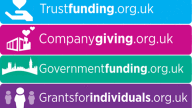The right financial information for decisions
Can financial information tip the balance when making important decisions in your charity?
Boards and senior managers need to look at the right information to make decisions. Backward-looking financial statements will provide only limited help with a decision about future resources. Similarly, an organisation-wide budget is the wrong starting place if you are making a decision about one department. You need the information about the financial consequences of that decision.
It is a common mistake to hark back to past money and effort expended in an attempt to gain a return on your investment. It might mean that you are “throwing good money after bad”, as the saying goes. You need to let go of the past and start focusing on what you can do now.
Another common mistake is to use the annual budget or management accounts as the basis for decision-making. Full cost recovery is a useful management tool because it helps to ensure that the organisation includes overheads in its costs and estimates of funding required for a service. However, in using the methodology, you have to assume a certain scale of operations and static overhead costs. Recruiting more staff, closing a service or starting a new project all change the scale of operations. In order to make good decisions, you need to focus on the financial changes that arise as a consequence of the decision.
As well as looking at costs and income, you need to consider the timing of cash inflows and outflows. Some new activities might require some initial expenditure to develop the project, or set up a new team or property. Small organisations can seek funding to cover all the set-up costs as well as the operational costs. If you use reserves or loans, you will need to factor in the timing of expenditure and loan repayments.
Financial information will often help to weigh financial risk in decision-making. Key financial information for decision-making includes the financial context, such as the level of reserves, the assets we own and whether we have existing secure sources of income. If we are financially strong, then we can afford to take risks. The same project or idea might not be feasible for an organisation that has no reserves. Other key financial information is the future cash flows arising from the decision – resources coming in as a result of this decision as well as the costs – and the timing of the future cash flows. Do you need to spend and wait for income to pay back your investment?
The effect of a decision on other parts of the organisation is also important financial information. It is easy to underestimate the cost of additional time and effort when starting new ventures.
Finally, comparisons are often the only way to weigh risks in decision-making. It’s difficult to judge whether a proposal is fair and reasonable unless you have a comparison. Ideally, you would have three or four options to choose from. Of course, finance is not the only criterion for your decisions, but it is an important
aspect to get right.
This article was originally published in Third Sector in June 2018
